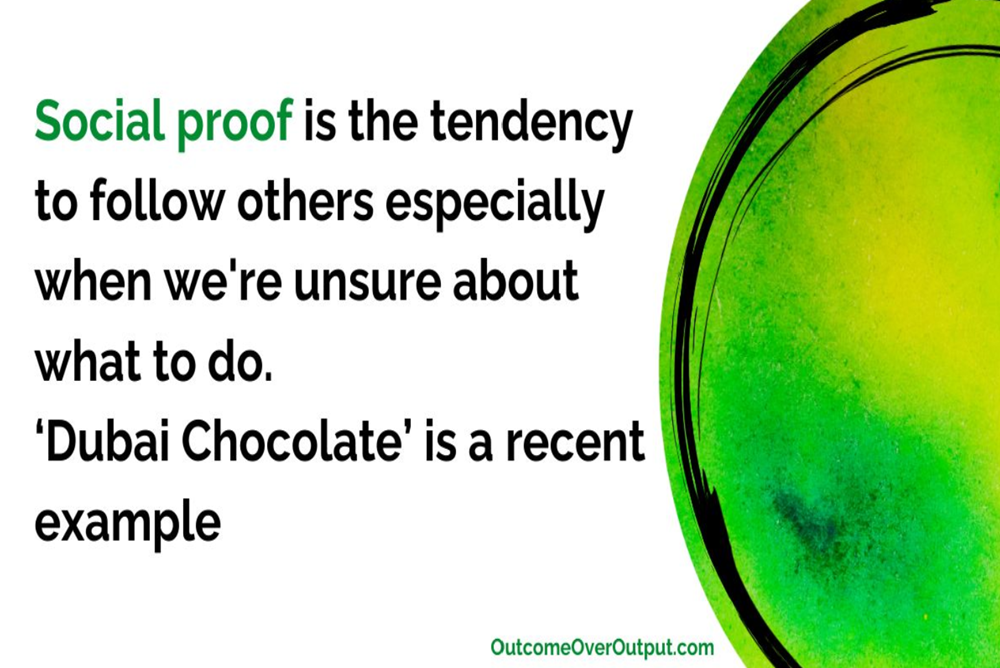
Social Proof: Lessons from Leadership, Product and agility training
Have You Ever Followed the Crowd?
Have you ever done something just because everyone else was doing it?
Maybe you bought a Tamagotchi.
Perhaps you queued for the newest iPhone.
Did you experiment with a Mohawk hairstyle and instantly regret it?
Or signed your team up for Jira?
And let’s not forget stockpiling toilet paper during the pandemic.
If I had a penny for every business that asked me what their competitors were doing and then tried to copy them, I’d be sipping cocktails on a beach in Bora Bora.
What is Social Proof?
Social proof, also known as informational social influence, is a psychological phenomenon where people imitate the actions of others to guide their own behaviour. The term was introduced by Robert Cialdini in his book Influence: Science and Practice back in 1984.
This behaviour often occurs in situations where individuals are uncertain about how to act and assume that others have a better understanding. It can also lead to herd behaviour, where large groups conform to the same actions or practices.
A Powerful Lesson in Conformity
For me, education is always the starting point when working with teams. Nothing drives a message home quite like a good video example.
One of my favourite clips to play during leadership, product, agility or even a transformation workshop features a woman at an eye clinic. She notices that each time a beep sounds, others in the waiting room stand up. At first, she is bewildered, not understanding why. But after a while, she starts standing too, simply copying the behaviour around her.
Why Copy-Paste Fails
Blindly copying others without understanding why leads to poor practices and entrenches bad habits.
Your challenges are unique. Your culture, team, leadership, products, and location differ from your competitor’s. So why would their solutions automatically be the right fit for you?
The Risk of Losing Yourself
When we mimic others without question, we risk losing what makes us and our organisations special. Instead of looking outward, take time to examine your unique context. Ask questions, explore possibilities, and design solutions tailored to your needs.
Because, as the saying goes, be yourself – everyone else is already taken.
If you’d like help discovering your organisation’s unique way of solving your problems, Outcome Over Output is here to guide you. Get in touch with us for a free consultation.
